Nicotinamide
Synonym(s):Nicotinamide;Niacinamide;NIC;NAM;Vitamin PP
- CAS NO.:98-92-0
- Empirical Formula: C6H6N2O
- Molecular Weight: 122.12
- MDL number: MFCD00006395
- EINECS: 202-713-4
- SAFETY DATA SHEET (SDS)
- Update Date: 2025-12-26 18:10:20
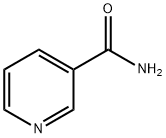
What is Nicotinamide?
Description
Nicotinamide is a form of vitamin B3. It is essential for the function of fats and sugars in the body and for maintaining healthy cells. A white, crystalline powder. It is odorless or nearly so, and has a bitter taste. Its solutions are neutral to litmus. One g dissolves in about 1 mL of water, in about 1.5 mL of alcohol, and in about 10 mL of glycerin. Nicotinamide is used to treat or prevent diseases associated with vitamin B3 deficiency and pellagra. It is also used in the treatment of acne, diabetes, cancer, osteoarthritis, skin aging, skin discolouration and many other conditions, but there is a lack of adequate data to support this.
Chemical properties
Niacinamide (Nicotinamide) is a white crystalline powder or forms colorless needle-like crystals.
Originator
Niacinamide,Twinlab
The Uses of Nicotinamide
Niacinamide is a nutrient and dietary supplement that is an available form of niacin. Nicotinic acid is pyridine beta-carboxylic acid and nicotinamide, which is another term for niacinamide, is the corresponding amide. It is a powder of good water solubility, having a solubility of 1 g in 1 ml of water. Unlike niacin, it has a bitter taste; the taste is masked in the encapsulated form. Used in fortification of cereals, snack foods, and powdered beverages.
Background
An important compound functioning as a component of the coenzyme NAD. Its primary significance is in the prevention and/or cure of blacktongue and pellagra. Most animals cannot manufacture this compound in amounts sufficient to prevent nutritional deficiency and it therefore must be supplemented through dietary intake.
What are the applications of Application
Nicotinamide is an NAD+ and NADP+ coenzyme precursor
Definition
ChEBI: A pyridinecarboxamide that is pyridine in which the hydrogen at position 3 is replaced by a carboxamide group.
Manufacturing Process
Gaseous ammonia was passed into nicotinic acid at a temperature between 200-235°C until the conversion to nicotinamide was 85%. The reaction mixture was colored light brown. The reaction mass was cooled and grounds to a fine powder. Fifty grams of this crude nicotinamide were boiled with 500 ml of anhydrous ethyl acetate until a dark solution was. obtained. A little solid remained in suspension. Gaseous ammonia was passed in below the surface of the ethyl acetate at a temperature between 60-70°C. After a short time ammonium nicotinate started to precipitate out of solution as a brown solid. Sufficient gaseous ammonia, was passed into the ethyl acetate solution to insure complete precipitation of the nicotinic acids as ammonium nicotinate. The solution was filtered at about 60-70°C. The filter cake consisted of ammonium nicotinate, which, upon drying, weighed 12.4 grams. The filtrate was stirred arid boiled for 20 minutes with one-half gram of activated carbon and two grams of activated adsorbent clay. The mixture was filtered hot. The filtrate was boiled twenty minutes with one-half gram of activated carbon and two grams of activated adsorbent clay and then filtered hot. The carbon and clay treatment was repeated once more. The final filtrate was cooled slowly with stirring to room temperature to precipitate white crystalline nieocinamide which, upon drying, weighed 26.7 grams and had a melting point of 129.5°C, and was over 99 percent pure. The mother liquor from the above filtration was boiled down to one-third of its volume and cooled to room temperature. A second crop of nicotinamide of three grams was obtained.
Therapeutic Function
Enzyme cofactor vitamin
Benefits
Niacinamide is a multipurpose skin care ingredient. It helps build keratin, a protein that maintains skin health.
1. Niacinamide may enhance the function of skin’s lipid barrier (a layer of water and oil that protects your skin). This helps lock moisture in and keep pollutants or other potential irritants out.
2. Niacinamide has been shown to ease inflammation, which can help calm redness due to conditions like acne, rosacea and eczema. It can also soothe irritation caused by strong exfoliants like retinol or glycolic acid.
3. Niacinamide may help minimize pore's appearance by helping keep your skin smooth and clear. It also may help regulate the amount of oil your glands produce, which can prevent breakouts and clogged pores.
4. Oral nicotinamide supplements may help prevent new skin cancer or precancerous spots from developing in some people.
5. Some research suggests skin care formulas with 5% niacinamide can also help lighten dark spots.
Synthesis Reference(s)
Journal of the American Chemical Society, 76, p. 5774, 1954 DOI: 10.1021/ja01651a043
Tetrahedron Letters, 36, p. 8657, 1995 DOI: 10.1016/0040-4039(95)01785-G
General Description
Vitamin B3 was formerly called nicotinic acid; however, the term niacin is now preferred to avoid any confusion with the alkaloid, nicotine. Niacinamide, also known as nicotinamide, refers to the amide derivative of niacin that is equivalent in vitamin activity. Some texts use niacin to refer to nicotinic acid, niacinamide, and any derivatives with vitamin activity comparable to niacin. Furthermore, research and chemistry-based resources use the terms nicotinic acid and nicotinamide; whereas pharmacy resources use niacin and niacinamide.
Air & Water Reactions
Water soluble.
Reactivity Profile
Amines may be incompatible with isocyanates, halogenated organics, peroxides, phenols (acidic), epoxides, anhydrides, and acid halides. Flammable gaseous hydrogen is generated by amines in combination with strong reducing agents, such as hydrides. Organic amides/imides react with azo and diazo compounds to generate toxic gases. Flammable gases are formed by the reaction of organic amides/imides with strong reducing agents.
Flammability and Explosibility
Non flammable
Biochem/physiol Actions
Nicotinamide is an amide derivative of vitamin B3 and a PARP inhibitor
Clinical Use
Niacin is used in the treatment of niacin deficiency, which is referred to as pellagra (from the Italian, pelle for “skin” and agra for “dry”). The major systems affected are the gastrointestinal tract (diarrhea, enteritis and stomatitis), the skin (dermatitis), and the CNS (generalized neurological deficits including dementia).
Safety Profile
Nicotinamide is a safe and inexpensive compound with negligible side effects. It is well tolerated even in doses of 1g/day to 3g/day.There are no reports of teratogenicity with nicotinamide. Minor side effects include nausea, vomiting, headache, fatigue. It does not cause vasodilatory side effects like flushing, alteration in blood pressure, body temperature or pulse as seen with niacin.In topical formulation, it does not cause skin irritation, photosensitization in concentrations of 0.0001% to 4%.
Potential Exposure
Used as a dietary supplement and food additive.
Metabolism
Not Available
Metabolism
Nicotinamide is ingested in food as part of pyridine nicotinamide adenine dinucleotide (NAD) and nicotinamide adenine dinucleotide phosphate (NADP) in plant and animal tissues. After the co?enzymes have separated, nicotinamide is absorbed almost completely in the small intestine. After absorption, nicotinamide is stored as NAD in the liver and excretion occurs via kidneys. Tryptophan is converted to nicotinamide through kynurenine?anthranilate pathway in the liver. Tryptophan can thus satisfy the requirement for dietary nicotinic acid.
Storage
Store at RT
Purification Methods
Crystallise niacin from *benzene. It has solubility in g/ml: H2O (1), EtOH (0.7) and glycerol (0.1). [Methods in Enzymology 66 23 1980, UV: Armarego Physical Methods in Heterocyclic Chemistry (Ed Katritzky, Academic Press) Vol III 83 1971, Beilstein 22 III/IV 389, 22/2 V 80.]
Incompatibilities
Combustible solid; dust may form explosive mixture with air. Amides are incompatible with oxidizers (chlorates, nitrates, peroxides, permanganates, perchlorates, chlorine, bromine, fluorine, etc.); contact may cause fires or explosions. Keep away from alkaline materials, strong bases, strong acids, oxoacids, epoxides.
References
Zapata-Pérez et al. (2021), NAD+ homeostasis in human health and disease; EMBO Mol. Med., 13 e13943 Guan et al. (2014), Mechanism of inhibition of the human sirtuin enzyme SIRT3 by nicotinamide: computational and experimental studies; PLoS One, 9 e107729 Hwang and Song (2017), Nicotinamide is an inhibitor of SIRT1 in vitro, but can be a stimulator in cells; Mol. Life Sci., 74 3347 Meng et al. (2018), Nicotinamide Promotes Cell Survival and Differentiation as Kinase Inhibitor in Human Pluripotent Stem Cells; Stem Cell Reports, 11 1347 Horwitz et al. (2014), Umbilical cord blood expansion with nicotinamide provides long-term multilineage engraftment; Clin. Invest., 124 3121
Properties of Nicotinamide
| Melting point: | 128-131 °C(lit.) |
| Boiling point: | 150-160 °C |
| Density | 1.40 |
| vapor density | 4.22 (vs air) |
| vapor pressure | 0Pa at 25℃ |
| refractive index | 1.4660 (estimate) |
| Flash point: | 182 °C |
| storage temp. | 2-8°C |
| solubility | 691g/l |
| form | powder |
| pka | 3.3(at 20℃) |
| color | white |
| Odor | Odorless |
| PH | 6.0-7.5 (50g/l, H2O, 20℃) |
| PH Range | 9 |
| Water Solubility | 1000 g/L (20 ºC) |
| Decomposition | >=200 °C |
| Merck | 14,6523 |
| BRN | 383619 |
| Stability: | Stable. Incompatible with strong oxidizing agents. |
| CAS DataBase Reference | 98-92-0(CAS DataBase Reference) |
| NIST Chemistry Reference | Niacinamide(98-92-0) |
| EPA Substance Registry System | Nicotinamide (98-92-0) |
Safety information for Nicotinamide
| Signal word | Warning |
| Pictogram(s) |
 Exclamation Mark Irritant GHS07 |
| GHS Hazard Statements |
H319:Serious eye damage/eye irritation |
| Precautionary Statement Codes |
P264:Wash hands thoroughly after handling. P264:Wash skin thouroughly after handling. P280:Wear protective gloves/protective clothing/eye protection/face protection. P305+P351+P338:IF IN EYES: Rinse cautiously with water for several minutes. Remove contact lenses, if present and easy to do. Continuerinsing. P337+P313:IF eye irritation persists: Get medical advice/attention. |
Computed Descriptors for Nicotinamide
| InChIKey | DFPAKSUCGFBDDF-UHFFFAOYSA-N |
Nicotinamide manufacturer
New Products
4,4-Difluoropiperidine hydrochloride tert-butyl 9-methoxy-3-azaspiro[5.5]undecane-3-carboxylate Indole Methyl Resin N-Isopropylurea N,N-Dicyclohexylcarbodiimide(DCC) MELDRUMS ACID 5-METHYLISOXAZOLE-4-CARBOXYLIC ACID Magnessium Bis glycinate Zinc ascorbate 1-bromo-2-butyne 2-acetamidophenol 9(10H)-anthracenone Erythrosin B, 4-Piperidinopiperidine 2-((4-morpholinophenylamino) (methylthio) methylene) malononitrile 2,4-dihydroxybenzaldehyde 3-(4-morpholinophenylamino)-5-amino-1H-pyrazole-4-carbonitrile Methyl 2-methylquinoline-6-carboxylate 2,6-dichloro-4-nitropyridine 4-Bromo-2-chlorobenzonitrile 2-(benzylamino)acetic acid hydrochloride 4-(tert-Butoxycarbonylamino)but- 2-ynoic acid 3,4-dihydro-2H-benzo[b][1,4]dioxepine 1-Phenyl-1-cycloprppanecarboxylicacidRelated products of tetrahydrofuran
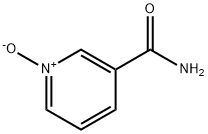


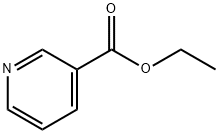
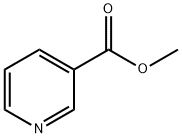
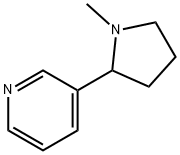

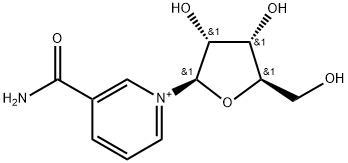
You may like
-
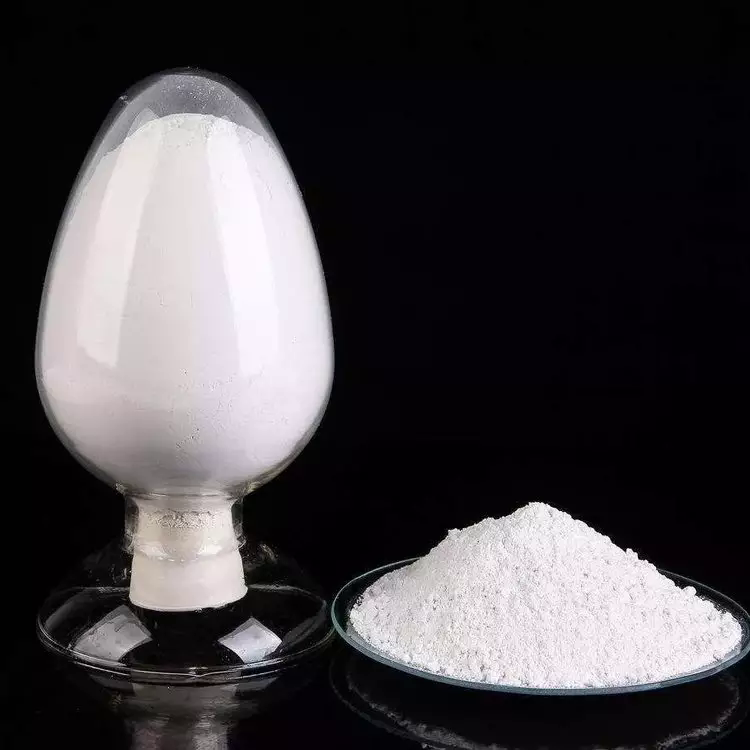 NIACINAMIDE 99%View Details
NIACINAMIDE 99%View Details -
 Nicotinamide 98%View Details
Nicotinamide 98%View Details -
 Nicotinamide for cell culture CAS 98-92-0View Details
Nicotinamide for cell culture CAS 98-92-0View Details
98-92-0 -
 Nicotinamide extrapure CAS 98-92-0View Details
Nicotinamide extrapure CAS 98-92-0View Details
98-92-0 -
 Nicotinamide CAS 98-92-0View Details
Nicotinamide CAS 98-92-0View Details
98-92-0 -
 Nicotinamide >99% (HPLC) CAS 98-92-0View Details
Nicotinamide >99% (HPLC) CAS 98-92-0View Details
98-92-0 -
 Niacinamide Powder IpView Details
Niacinamide Powder IpView Details
98-92-0 -
 Niacinamide 5% Face Serum With Vitamin B3, Packaging Size: 100 mlView Details
Niacinamide 5% Face Serum With Vitamin B3, Packaging Size: 100 mlView Details
98-92-0
